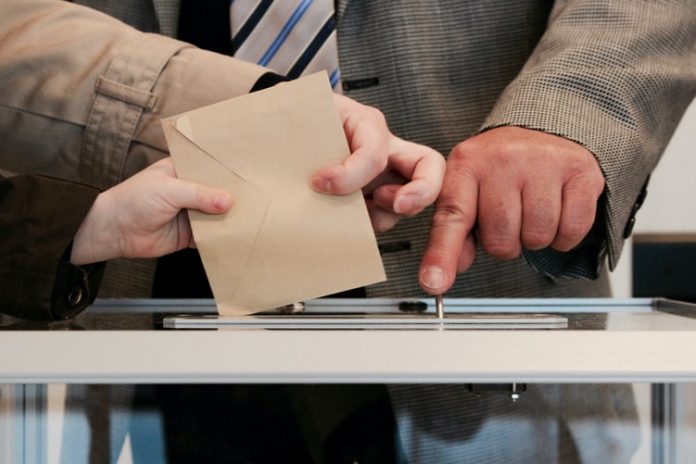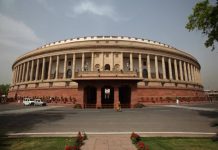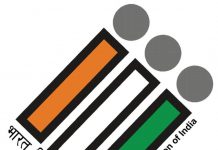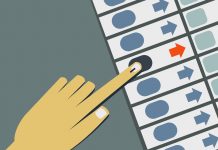This article is written by Shivani Panda from Amity Law School, Delhi. Here the author discusses the issue of paid news and corruption in mass media during elections.
Table of Contents
Introduction
The press plays a significant role in building a nation and the growth of a healthy democracy. It acts as a bridge between people and other pillars of democracy, that is, the legislative, executive, and judiciary. It helps in holding the authorities accountable for their actions and inactions. News is supposed to be objective, fair, and neutral that leaves enough space for people to form opinions regarding any issue. Thus, the freedom of the press is of paramount importance in any democratic setup. However, with the rise in the phenomenon of political paid news, the freedom of press and journalists are in danger. It runs beyond individual journalists and media companies and has evolved into an organized form, wherein newspapers and television channels receive huge funds by the political parties to publish or broadcast news that is generally false, to support their propaganda. That, in turn, negatively sways the audience and instigates hatred and violence. Therefore, it is essential to conserve the sanctity of the fourth pillar of democracy to maintain peace and harmony among people, while also retaining the freedom of press and journalists.
Meaning of paid news
Paid news can be understood as the publishing or broadcasting of a news item that is generally biased or false, for the benefit of the party, in exchange for consideration. It is an old phenomenon but it became particularly noticeable during the 2009 general elections. The Press Council of India (PCI) on its report on paid news published in 2009, defines it as any news or analysis appearing in print or electronic media for consideration in cash or kind. The Parliamentary Standing Committee on Information technology under the Ministry of Information and Broadcasting (MoIB), in its 47th report on the “Issues Related to Paid News”, backed the definition given by PCI and referred to this phenomenon as paid news syndrome. It also included advertisements disguised as news. However, there is a need for a comprehensive and inclusive legal definition of paid news, that should be formulated in consultation with the stakeholders, such as the PCI, journalists, and corporate entities.
-
Difference between news and political advertising
Political advertising refers to the kind of advertisement that promotes a party or a candidate for a party. It may also include advertising about issues of public interests or government policies. Election advertising is also a part of political advertising, where content regarding an upcoming election is advertised, promoting a particular party or a candidate and their manifesto. It may also include criticizing the current government’s policies. However, with the rise of the phenomenon of paid news, the line between news and advertorials had blurred. Paid news promotes a political party disguised as an informative piece of news, often misleading the readers and viewers. It shakes the core democratic value enshrined in the Constitution of India. Thus, the PCI and the MoIB suggested the media and news channels demarcate between news and political advertising. The printing press should print disclaimers below political advertisements, and news channels should carry a credit line that distinguishes news from political advertising.
-
Causes of paid news
The Standing Committee identified various reasons for the rise in paid news. Poor wage level and decline in the autonomy of the journalists, corporatisation of media, and tug of war between editors and managers of the newspapers and channels, are few of the major contributors. The reasons are discussed in detail below:
-
Lack of autonomy of the journalists
In most cases, the managers of a media house strike a deal with a party to publish paid news, who then force their editors to cover news in favour of the entity that pays them. Thus, journalists are reduced to work as marketing agents, advertising copywriters, etc. The managers, instead of the journalists, play a more influential role in the selection and presentation of news from which revenue would be generated. Such interference sours the relationship between management and journalists and leads to a toxic work environment.
-
Private treaties
A private treaty is an agreement between media companies and corporate entities or non-media companies, in which the latter transfers a few shares of the company to the former for advertisement space and favorable coverage. This phenomenon started in 2003 when Bennett, Coleman Company Limited (BCCL), publishers of Times of India (TOI) decided to start a paid content service called Medianet that sent journalists to cover product launches of companies for a price. This move was heavily criticized, but it was later swept under the carpet, and this practice boomed in other media networks as well. Many companies, such as Videocon India, Kinetic Motors, and Pantaloons brought space in TOI in exchange for shares in their companies. It comprised the quality of news content in TOI, and as we can see now every second page in the paper is a full-page corporate or political advertisement.
Implications on the electoral process
Paid news is rampant both during the election and non-election time. News content is brought by the political parties or a candidate during elections, from journalists and media houses as well as from advertising agencies and public relations firms. They have to praise the party or candidate who paid them and also criticize their opponent. Candidates who deny being a part of this corruptive practice, do not get any coverage by the press. The effects of election time paid news phenomena as enumerated by the PCI in its report of 2009 are as follows:
- The public does not get a correct picture of the political party or the candidate, as the news published regarding their work is biased and false. It destroys the very essence of democracy.
- The contesting candidates should file their financial statements with the Election Commission of India (ECI), where they are supposed to show all the expenses incurred and income earned by them. However, the transactions here are mostly done in cash or kind, which are not recorded, thereby violating the Conduct of Election Rules, 1961 laid down under Representation of People Act, 1951 (RPA).
- Lastly, the press who receive the consideration in exchange of the news published by them, do not disclose such transactions in their statements, thereby violating the Income Tax Act, 1961 (IT Act). Since the deal is not on papers, it becomes difficult for the authorities to hold any party accountable.
Existing legal framework
-
Constitution of India
Article 19 of the Indian Constitution guarantees the freedom of speech of the citizens, including that of the press. The commercial speech also falls within the ambit of this article. Thus, paid news can find recourse under free speech. However, along with the right to freedom speech of press, the right to information of people shall be observed. The information disseminated under the garb of freedom of the press shall be true and unbiased. It is the public’s right to access fair information to form opinions on matters of public interest, and the media must impart such information. In the Supreme Court in the case of Secretary, Ministry of Information and Broadcasting, Government of India & Ors. v. Cricket Association of Bengal & Anr. observed that, misinformation or one-side information of news, influenced by an authority or private individuals, threatens the core value of democracy.
-
Representation of People’s Act, 1951
- Section 123 of the Act states the corrupt practices which are illegal and lead to the disqualification of the person. Section 123(4) declares that if a candidate or his agent publishes false statements related to the character of other candidates, that person will be disqualified from the election under Section 8A of RPA.
- Under Section 77, every candidate is to disclose their financial statements regarding the expenses during elections to the ECI, failure of which would lead to their disqualification for not more than three years. The instances of paid news are to be taken into account from the nomination of the candidate till elections. Paid news is a commercial transaction and it is interpreted as ‘other document’ under Section 127A(3)(b) of the RPA. Disclosure of those documents and transactions to the ECI is mandatory under RPA.
-
Election Commission of India
The Election Commission of India is an autonomous body established under Article 324 of the Indian Constitution, that governs the election procedure in India, from state to national level. The commission also oversees the conduct of the political parties and election candidates and has the power to disqualify them. Following are the guidelines laid down by Election Commission to curb the phenomenon of paid news:
- In the case of Ministry of Information and Broadcasting v. M/s Gemini TV Pvt Ltd & Ors. the apex court directed that all political advertisements by any registered party or candidate before publishing it on TV, Radio, or newspaper should get approval from the ECI.
- It set up a Media Certification and Monitoring Committee (MCMC) at the district and state level that has to monitor and certify all political advertisements and paid news by the candidates of that area. It will scrutinize bulk SMS/voice messages, social media, social media, cinema halls, radio, etc., in the area where it is established. The guidelines were amended in 2019, wherein an intermediary/social expert is also included in the committee.
- The candidates are to include the expenses incurred in the advertisements and paid news on TV channels and newspapers, as given under the Compendium of Instruction on Election Expenditure Monitoring.
- All state Chief Electoral Officers (CEO)have to list all TV, radio channels, and newspapers in their state along with their standard advertisement rates six months before the Lok Sabha or Rajya Sabha dissolves. If the Commission finds out that party in their financial statements has not included the expenses of paid news and advertorials, it can levy those charges based on the rates that were collected by the state CEOs before the elections.
- Major stakeholders of the press like PCI and News Broadcasters Association (NBA), also help the MCMC to gain control over the situation of paid news. The NBA has laid down its own guidelines regarding this issue, and any person or association who is found to be guilty of the offence by MCMC, are sent to NBA, where legal action is taken against them as given under the guidelines.
Judicial Decisions
-
Smt. Umlesh Yadav v. Election Commission of India
In this case, Smt. Umlesh Yadav, a sitting MLA from Uttar Pradesh was disqualified on October 24, 2011, by the Election Commission for three years under Section 10A of the Representation of People Act, 1951 as she failed to provide a correct account of her expenses under Section 77 of the Act. She approached the Allahabad High Court regarding this matter, who upheld the decision of ECI and disqualified her from contesting elections.
-
Ashok Shankarrao Chavan v. Election Commission of India
In a similar case, the Commission disqualified Ashok Chavan from contesting elections for three years on the ground of falsity and delay in filing the financial statement regarding the expenses by Chavan pre-election. However, the Delhi Court set aside the order of ECI and Ashok Chavan was allowed to contest elections.
-
Dr. Narottam Mishra v. Election commission of India & ors.
Narottam Mishra is currently the Minister for Home Affairs, Madhya Pradesh. He was disqualified by the ECI on June 23, 2017, for filing false accounts of election expenditure and using paid news during the elections of 2008. The commission established 42 cases of paid news against Mishra. He appealed to the Delhi High Court, who stayed the disqualification order by the Commission. Moreover, the HC stopped ECI from trying any cases regarding paid news and stated that such disqualifications affect the free speech of the citizen. Thus, the Commission moved to the Supreme Court in October 2018, who stayed the order of Delhi High Court on the aspect of probing the cases of paid news. The judgment by the apex court on this case is still awaited.
Recommendations
- In February 2020, the Election Commission sent a letter to the Government of India to make paid news and false affidavits electoral offenses under RPA. It was also suggested by the Chief Election Commissioner in 2011, however, that was still pending before the Government, till a new set of suggestions was made in 2020. Filing a false declaration attracts six months jail term, but if it becomes an electoral offence, the candidate will be disqualified from contesting elections.
- It is important to penalise the offence of paid news. The Indian Penal Code should be amended and a comprehensive definition of paid news should be inserted in the act. It will hold both the media houses and political parties or corporate entities liable for the offence of paid news.
- The PCI in its report suggested the establishment of an ombudsman or a complaint redressal mechanism in the media houses. It will probe into the matters of paid news in the office before it goes to the court.
- The disclosure provisions should be made compulsory for all the media houses. Rule 7(9) of the Cable Television Network Rules, 1994 should be amended to this effect.
Conclusion
During the 2014 general elections, paid news was a major problem, however, it was pushed to the back seat with the rise of fake news. Both violate the conduct of free and fair elections and freedom of the press. The citizens have the right to receive correct and unbiased information from the press, based on which it forms opinions regarding various issues of public interest. There is no straightjacket formula to identify and penalise paid news. Many news channels now are owned by MP or MLAs of a party, who indirectly influence the content of the channel. For instance, Republic News was co-founded and owned by Mr. Rajiv Chandrashekhar, who is currently an independent member of Rajya Sabha but has links with the Bharatiya Janata Party (BJP). The channel has been accused of being biased towards BJP and violating the code of ethics of journalism. Now the fate of paid news and the power of ECI to look into these matters rests on the judgment of the Supreme Court in the Narottam Mishra case.
References
LawSikho has created a telegram group for exchanging legal knowledge, referrals and various opportunities. You can click on this link and join:
 Serato DJ Crack 2025Serato DJ PRO Crack
Serato DJ Crack 2025Serato DJ PRO Crack











 Allow notifications
Allow notifications


